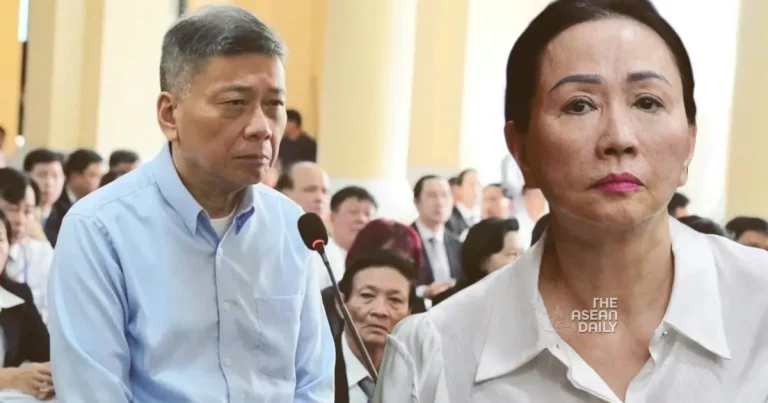12-4-2024 (HANOI) The Vietnamese business world has been sent into shockwaves as Truong My Lan, a prominent real estate mogul, was handed a death sentence on Thursday for her involvement in the nation’s largest-ever financial fraud case. Lan, whose empire once encompassed some of Vietnam’s most prestigious properties, was found guilty of defrauding a staggering $12.5 billion (£10 billion) – nearly 3% of the country’s 2022 GDP.
While capital punishment is not uncommon in Vietnam, the severity of Lan’s sentence for a financial crime involving such a high-profile businesswoman has sent ripples through the nation’s corporate landscape. The case has also served as a stark reminder of the government’s ongoing anti-corruption drive, which has gained significant momentum since 2022.
Lan’s journey from humble beginnings to becoming one of Vietnam’s wealthiest entrepreneurs is a remarkable tale. Born in 1956, she assisted her mother, a Chinese businesswoman, in selling cosmetics at Ho Chi Minh City’s oldest market. In 1992, as Vietnam transitioned towards a more market-oriented economy, Lan and her family established the Van Thinh Phat (VTP) company, which rapidly grew into a real estate powerhouse with holdings in some of the country’s most coveted properties, including the Times Square Saigon, Windsor Plaza Hotel, and Capital Place office building.
The crux of the charges against Lan centred around her alleged involvement in the 2011 merger of Saigon Joint Commercial Bank (SCB) with two other lenders, orchestrated by Vietnam’s central bank. Prosecutors accused Lan of using SCB as her personal piggy bank, illegally controlling it from 2012 to 2022. Government documents revealed a sprawling network of thousands of “ghost companies” both within Vietnam and abroad, used by Lan to secure illicit loans for herself and her allies, resulting in losses of $27 billion (£21.6 billion), according to state media reports.
In addition to fraud charges, Lan faced accusations of bribery, including payments to a former central bank official who received a life sentence for accepting $5.2 million (£4.2 million) in bribes, as well as violations of banking regulations.
The court’s decision to impose the death penalty underscored the severity of Lan’s actions, stating that they not only violated individual property rights but also eroded public trust in the leadership of the Communist Party and the state, forcing SCB into a state of special control.
Lan’s arrest in October 2022 marked a high-profile moment in Vietnam’s anti-corruption campaign, championed by Communist Party General Secretary Nguyen Phu Trong, the country’s most influential politician. The case has also raised concerns about potential wrongdoing within other banks and businesses, dampening Vietnam’s economic outlook and leaving foreign investors apprehensive at a time when the country is positioning itself as an alternative business hub to neighbouring China.
Amid these developments, Lan’s husband, Hong Kong investor Eric Chu Nap-kee, has submitted documents to the court, pleading for his wife’s life to be spared. He expressed remorse for not being more involved in her business affairs, hoping to prevent her participation in the fateful merger involving SCB and the other two lenders.




